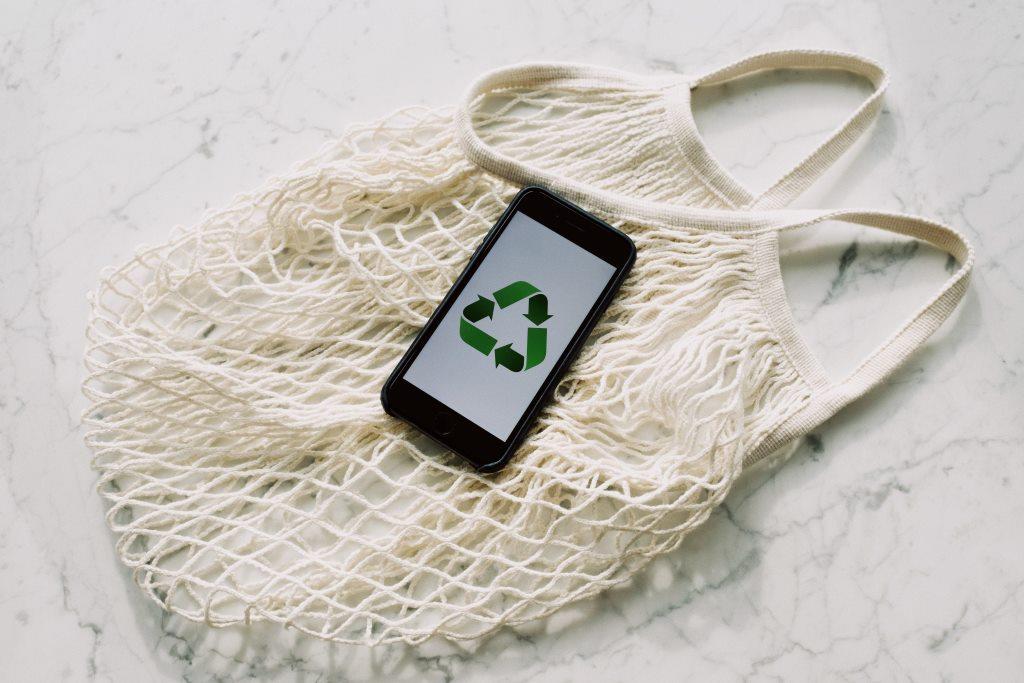
STEPS YOU CAN TAKE TO BECOMING AN ECO-FRIENDLY YOU!
Share
What does being eco-friendly mean?
Being environmentally conscious or eco-conscious is becoming increasingly important. Job advertising, dating profiles, and even real estate listings for residences and vacation cottages all utilize the term. So, what does being environmentally responsible entail?
The simplest definition of what it means to be environmentally conscious is that it is the act of living with purpose. The goal is to avoid harming the environment and to limit the amount of harm that occurs as a result of your interactions with it. It's more than a notion; it's a set of practices that influence how communities, businesses, and individuals act.
Being environmentally conscientious takes more than simply turning off lights when you leave a room or sorting rubbish for recycling; it also entails shifting your life's purpose.
Eco-friendly objects promote green living by conserving energy and reducing air, water, and noise pollution. They are environmentally friendly while also reducing the deterioration of human health.

We must all take small actions toward environmental protection. Here is a list of few baby steps that you and I can take together to make a difference:
Making your home more eco friendly:
While households do not pollute as much as corporations, there are many things you can do as a homeowner to help the environment. It's critical to make adjustments whenever possible, and because your home is something you can improve, why not begin now? Here are some of the things you can do, from significant home improvements to little, basic changes that can make a big difference.
Renewable energy
One way for homes to become more environmentally conscious is to invest in a renewable energy source for power. The majority of residences are wired onto a grid that runs on non-renewable energy sources like oil or gas.
Solar panels are a sort of renewable energy technology that uses the sun's energy to generate electricity. In this photovoltaic system, the sun's energy is captured and turned into electricity. It is significantly more environmentally friendly to use energy obtained from the combustion of fossil fuels.
Switch heating sources
Using a renewable energy heating source to heat your home is another way to reduce your carbon impact. An example of a much more environmentally friendly heating source is boilers. Boilers can run on one of four different fuels, allowing homeowners to select the best option for their property. There are options for gas boilers, oil boilers, electric boilers, and biomass boilers.
Heat pumps, which can also be used for house heating, are another option. Heat pumps are more environmentally friendly because they require less energy and do away with the need for gas pipes and oil tanks.
Solar thermal is another alternative for switching to a more ecologically friendly energy source. A solar thermal panel uses the sun's heat to heat water and generate electricity without combustion, making it a far cleaner alternative to gas or oil.
Depending on the type of heating source you use, you can save a significant amount of money. Switching to solar thermal might save you at least £50 in energy costs.
Using eco-friendly products to clean your house
Numerous cleaning products sold in the market contain chemicals that are harmful to the environment. Many of the chemicals we use to clean our clothes, dishes, and homes actually destroy the biodiversity of our world.
Chemicals such as detergents, preservatives, and foaming agents are among the most harmful to the environment. Switching to products that contain ingredients that are sustainably grown or reared and do not deplete or harm the environment when disposed off.
People who want to acquire environmentally friendly household products should opt for items that don't include any synthetic chemicals.
How to become more eco friendly in your day to day life?
Because many of our daily activities are done instinctively, there's a significant chance that some, if not all, of them, aren't always the most environmentally friendly option.
To move your habits toward more ecologically friendly alternatives, you just need to make a few minor adjustments. It's preferable to make sure that the changes last for a long period so that they become second nature.
sure that the modifications are durable over a longer length of time so that they become routine.
Investing in sustainable clothing:
Clothing manufacturing has substantial negative environmental consequences. Because these items are mass-produced in vast quantities, Fast Fashion is largely to blame. These volumes are produced just to be discarded in billions, with synthetic fibers taking up to 200 years to disintegrate.
Our biodiversity is likewise threatened by these fibers. Microplastic fibers from these garments end up in the oceans, where they are ingested by marine life. Consumers should be aware of the sorts of clothes they buy and the materials used to make them and look for companies who have committed to reducing emissions and water pollution related to garment manufacturing.
Using organic daily products like:
- Bamboo toothbrush
Each year, 3.6 billion plastic toothbrushes are purchased worldwide; over 99 per cent of those are plastic toothbrushes; 1 billion are thrown into landfills in the United States alone each year, and those plastic toothbrushes that end up in landfills or our oceans will take over 450 years to decompose.
Composting your bamboo or organic toothbrush, which will decompose back into the earth in 4-6 months, doesn't require a genius to realize the immediate advantage.
Chopping boards and cooking utensils are made of wood and bamboo for a purpose. The natural properties of wood act as an antibacterial, causing germs to degrade and die.
"It's only a toothbrush," many argue. "How can you change the world with only a toothbrush?" Yes, it's just a toothbrush, but think about it... You may be encouraged to make other little changes in your life to become more sustainable if you begin and end each day in a sustainable manner. You can start by using a reusable coffee mug, riding your bike to work, eating less red meat, and carrying your bag with you for the rest of your life. There are several minor adjustments we can all make that will have little impact on our lives, but when we work together as a collaborative with millions of people throughout the world, the people will have a voice.
- Bamboo straw
First things first, the best thing about Bamboo Straws is their long-term viability. Unlike single-use plastic straws, which do not biodegrade and pollute the environment, bamboo straws are made entirely of natural materials. They serve as a compelling reminder that nature is the best source of food and products for all of our needs.
This implies that if they're released back into the environment, they'll biodegrade safely and won't harm the local flora and animals. They have a place in the world that is rightfully theirs!
Bamboo Straws have arrived to put an end to the detrimental "throwaway culture" that plagues our society. As we continuously produce more single-use plastic than we can properly manage, reusable solutions are more important than ever. Use, clean, and re-use them to avoid waste and headaches.
On our beaches, a total of 8.3 million plastic straws had been discovered. We've all seen the effects of this vast waste stream, as these straws harm the eco-systems of vital animals like birds and turtles. Bamboo Straws are an amazing alternative to single-use plastics because they are both biodegradable and recyclable.
- Cloth bags
Every year, approximately 500 billion bags that are made out of plastic are used around the world. So many that about one million bags are created every minute, wreaking havoc on the environment. Bags made out of Jute and cloth, which are made from renewable natural fibers, are preferable to polybags, which are petroleum-based and non-biodegradable while creating paper bags needs a significant quantity of wood.
- Environmentally friendly.
- They don't need to be maintained.
- Biodegradable and recyclable to the fullest extent possible
- Compared to plastic and paper bags, this is a more cost-effective option.
- When compared to promotional carry bags, they are stronger and can hold greater weight.
- Durable and long-lasting, unlike plastic and paper bags, which are easily torn.
- Jute has high insulating and antistatic qualities, as well as a low thermal conductivity and a moderate moisture re-absorption rate.
How can I be eco-conscious at work?
Environmental sensitivity does not have to be restricted to the home. Employees may help the environment and make their work more sustainable by doing a variety of things.
Encourage public transportation
Depending on the distance and time between the employee's residence and the office, there are a variety of ways to get to work. While driving appears to be the most convenient and time-saving option, taking the train or bus pollutes the environment less. Depending on your city's bike infrastructure, you might even be able to ride your bike to work.
Don’t waste paper
A lot of paper is printed in the workplace. Printing paper is unavoidable, whether for a conference or to sign a contract. On the other hand, printing paper isn't always required.
The greatest thing you can do is think about whether you really need a hard copy of a document. If you don't have access to a printer, consider sending it by email. To lessen their carbon footprint, contracts can be sent and executed online
Be mindful of using electricity
Offices need electricity to run their equipment, amenities, and facilities. However, it is vital to be conscious of energy consumption and to be aware of what is required.
Electric equipment can help to create a greener workplace if it is turned off when it is not in use. It's critical to maintain track of your energy usage and make modifications if you think you'll go over your monthly limit.
In addition, an increasing number of major tech companies are turning to green energy to meet their energy needs.
